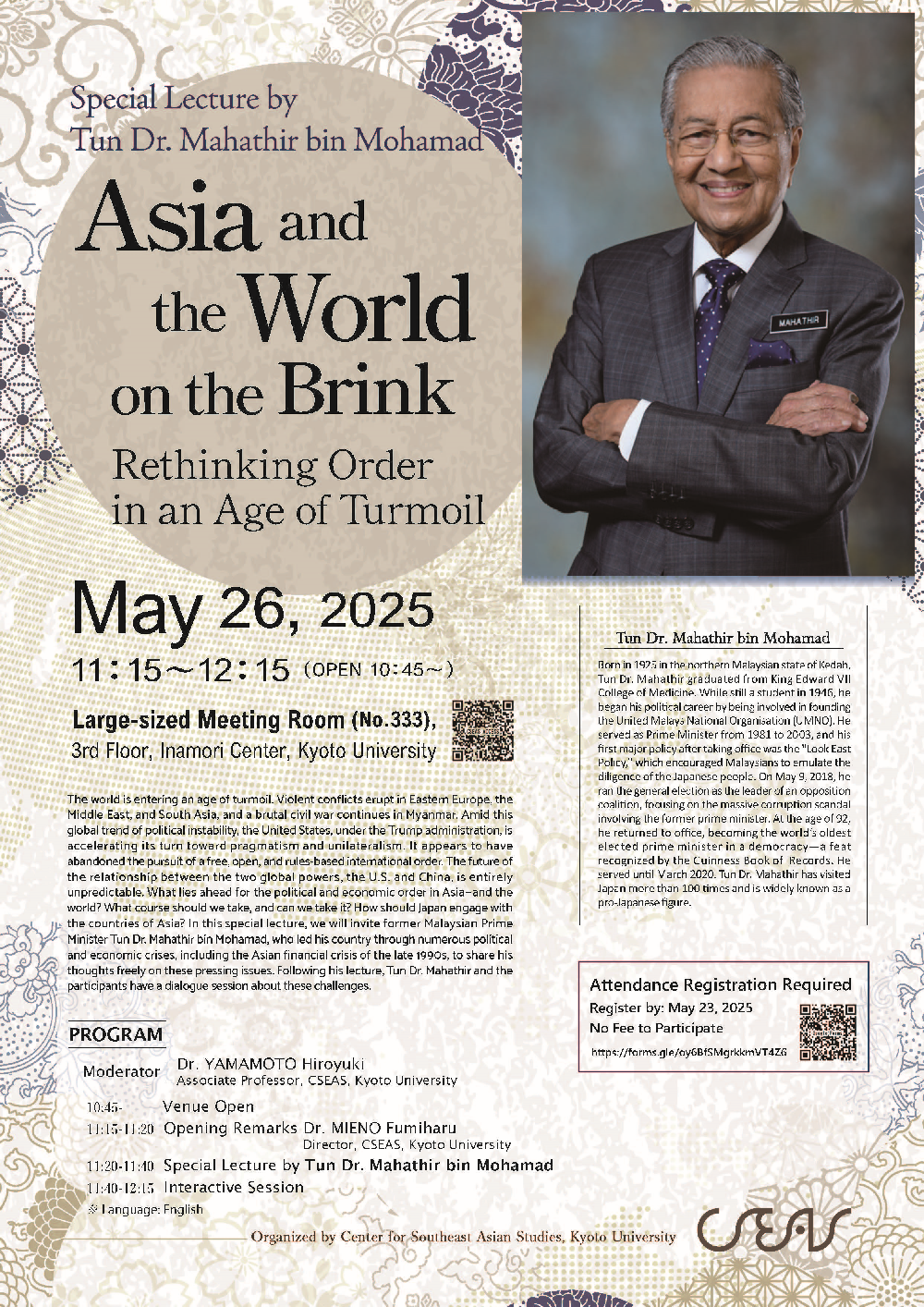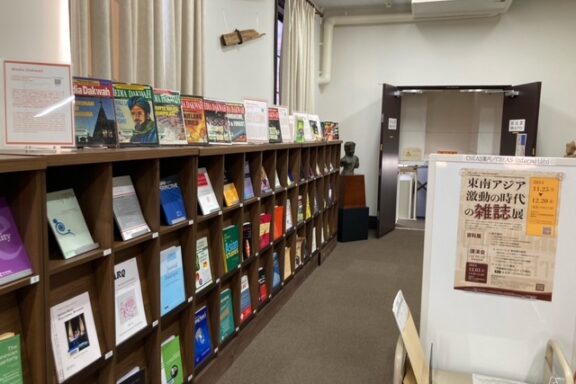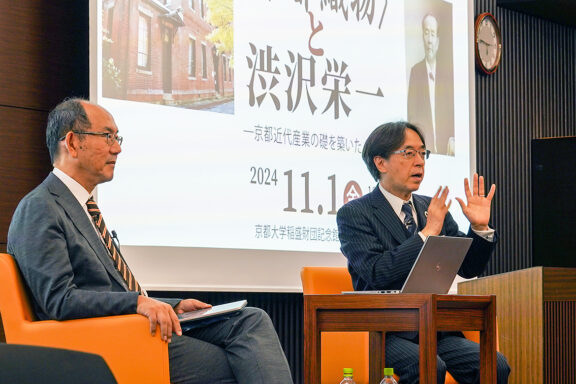Center for Southeast Asian Studies, Kyoto University
On May 26, 2025, a special lecture entitled “Asia and the World on the Brink: Rethinking Order in an Age of Turmoil” was held at the 3rd Floor Conference Room of the Inamori Center at Kyoto University, featuring former Malaysian Prime Minister Tun Dr. Mahathir bin Mohamad. Approximately 150 participants attended the event, including students, faculty members, and the public.
Three challenges and the changing world order
The special lecture was moderated by Associate Professor Hiroyuki Yamamoto, and began with a greeting from Director Fumiharu Mieno. This was followed by a special lecture by Dr. Mahathir Mohamad. In the midst of our turbulent times, Dr. Mahathir explained, the world is dealing with three major problems: population growth and the issues of governance, climate change, and tension among the world’s great powers on an international level.
Despite these issues, he continued, Asia has gone through a history of decolonization and have become more stable than ever, and the world order once dominated by the countries of the West is changing. For a while it was feared that Japan would emerge as the “No. 1” country in the world, but today China is on the rise. The United States, in particular, says Dr. Mahathir, is wary of China and as the two countries compete, the other countries are having to take sides. The situation has not yet escalated to military conflict, but should it do so, even accidentally, the clash of the two nuclear powers could drive humanity to extinction.
The necessity of United Nations reform
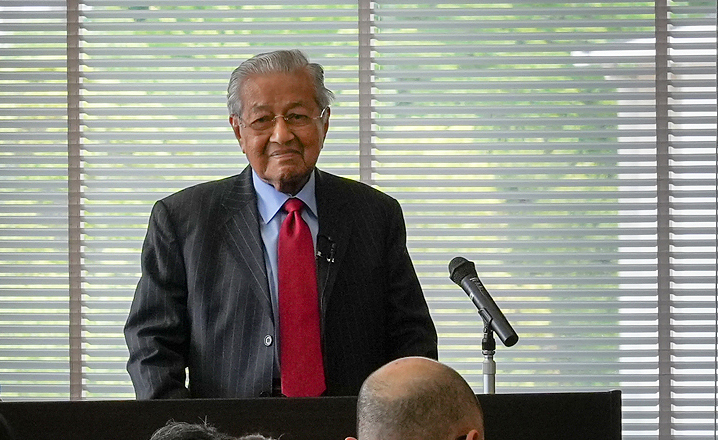
A non-violent solution to diffuse the situation needs to be found, and while this is precisely why the United Nations was established, he noted, the veto power of the five major powers is preventing the world from making democratic decisions by majority vote. Furthermore, he added, what is happening in Gaza is genocide, but because the United States supports Israel, nothing is being done, and this is not civilized.
In these circumstances, what is the role that Asia might play? First of all, Asia is more stable than any other region of the world. Second, tensions between Asian countries are not escalating to violent clashes or war. Any war of aggression, he said, should be considered a crime, no matter what the circumstances. Which is why, he continued, the UN needs to be reformed so that it can respond should a major power launch such a war. The ideal, Dr. Mahathir asserted, is for all nations to receive equal treatment under international law. Even small nations should be able to sanction large nations. Dr. Mahathir concluded by summarizing the issues raised in his lecture and expressing the hope that the people of the world will have the wisdom to choose good leaders.
Q&A session: Asia’s role and leadership
In the Q&A session following the lecture, Dr. Mahathir was asked what roles Japan and Malaysia have to play given the UN’s current situation. He responded that because both countries are not permanent members of the UN Security Council, they should work to ensure that majority votes in the UN General Assembly override the Security Council, even if that means the powers on the Security Council lose their veto rights. Dr. Mahathir then turned to Japan, explaining how his own Look East Policy had been modeled on Japan’s experience. Japan’s culture of shame, he said, pushed it to work hard to create only the best products so that it would not be looked down upon by the world. And that was something he wanted to achieve in Malaysia as well. Next, he was asked about his legacy. That is something other people must decide, he said, but then went on to explain that he knew Malaysia needed to industrialize in order to grow, and to this end he encouraged direct foreign investment, even from the former colonizing states, and that is what has led to Malaysia’s development today.
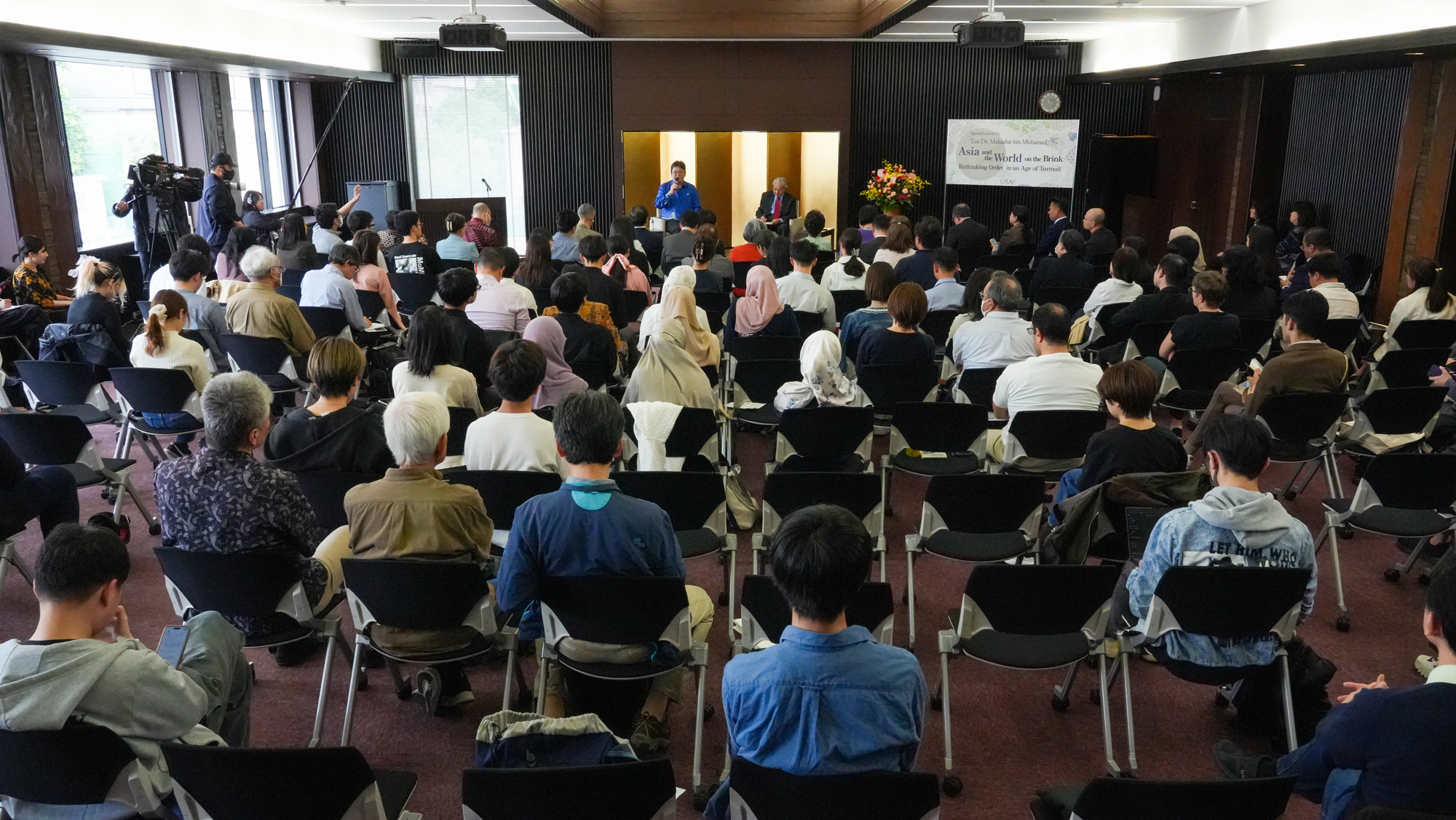
The next question was on social media. Dr. Mahathir compared it to a double-edged sword, saying that though social media makes it possible to communicate truth to everyone, it can also serve to spread fake news, and this needs to be taken into consideration. The best we can do is to use social media responsibly to convey truth even when that entails risks, and hope that we can achieve the former outcome rather than the latter.
Dr. Mahathir has long emphasized the importance of a nation’s sovereignty as well as democracy, but in the next question he was asked about the allegations of judicial interference during his time in office and whether or not it indicated that he was overlooking his own authoritarian tendencies. After refuting that he had ever done such a thing, Dr. Mahathir said he did not seek to undermine democracy, but only to tell the world of Malaysia’s successful experiences.
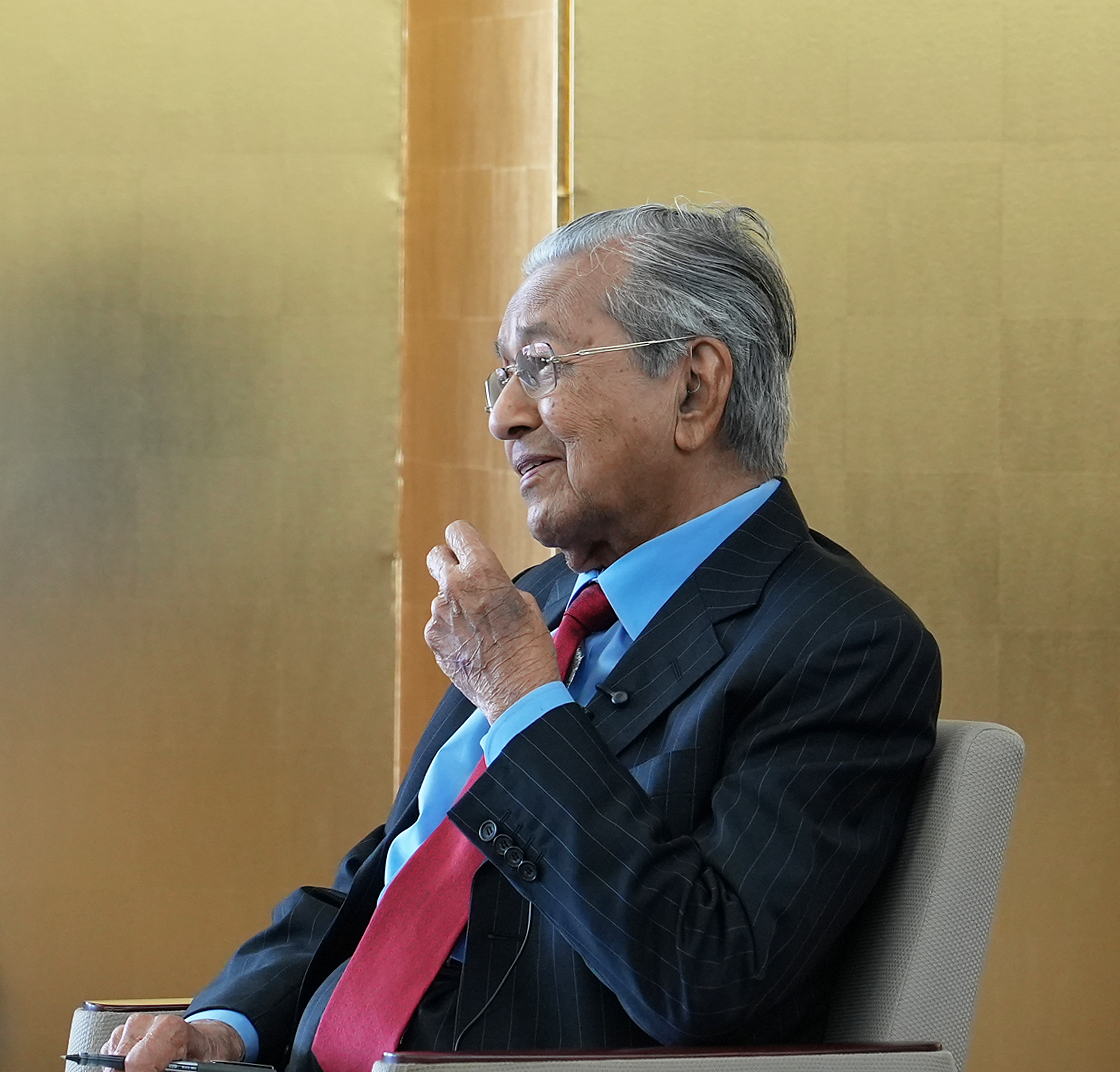
After this, Dr. Mahathir was asked what Japan could learn from Malaysia as an ethnically diverse country, as more and more people immigrate to Japan. He prefaced his response by noting that Japan has always had immigrants but they have been few and generally have assimilated to Japanese culture and mastered the Japanese language. Arabic and other peoples have done the same in Malaysia by assimilating to the Malay culture. Problems arise, he said, when immigrants fail to assimilate and try to maintain strong ties to their country of origin. The more they act in this way, the bigger the problems become.
Getting away from politics, there was a question about Dr. Mahathir’s own mental strength. He explained that he has a passionate desire to protect his country, and wants his people to be strong. On his visits to Japan, he has always thought of how Malaysia could develop in the same way.
Being asked what role Japan should play in the world, Dr. Mahathir touched on the Japanese Constitution and the Self Defense Forces, saying how important it was that Japan has a Constitution that forbids it to conduct an aggressive war. If only all countries did this and weapons of mass destruction and nuclear weapons were also banned, he said, the world could be managed by an international organization such as the UN. That is the ideal.
Finally, Dr. Mahathir was asked how countries can choose good leaders. He noted that it is assumed that the democratic election of leaders eliminates the rise of tyranny, but the actual process is subject to exogenous factors such as bribery and ethnic conflicts. These factors create undesirable leaders and international conflicts between countries with such leaders.
The event closed with words of appreciation and a commemorative photograph.
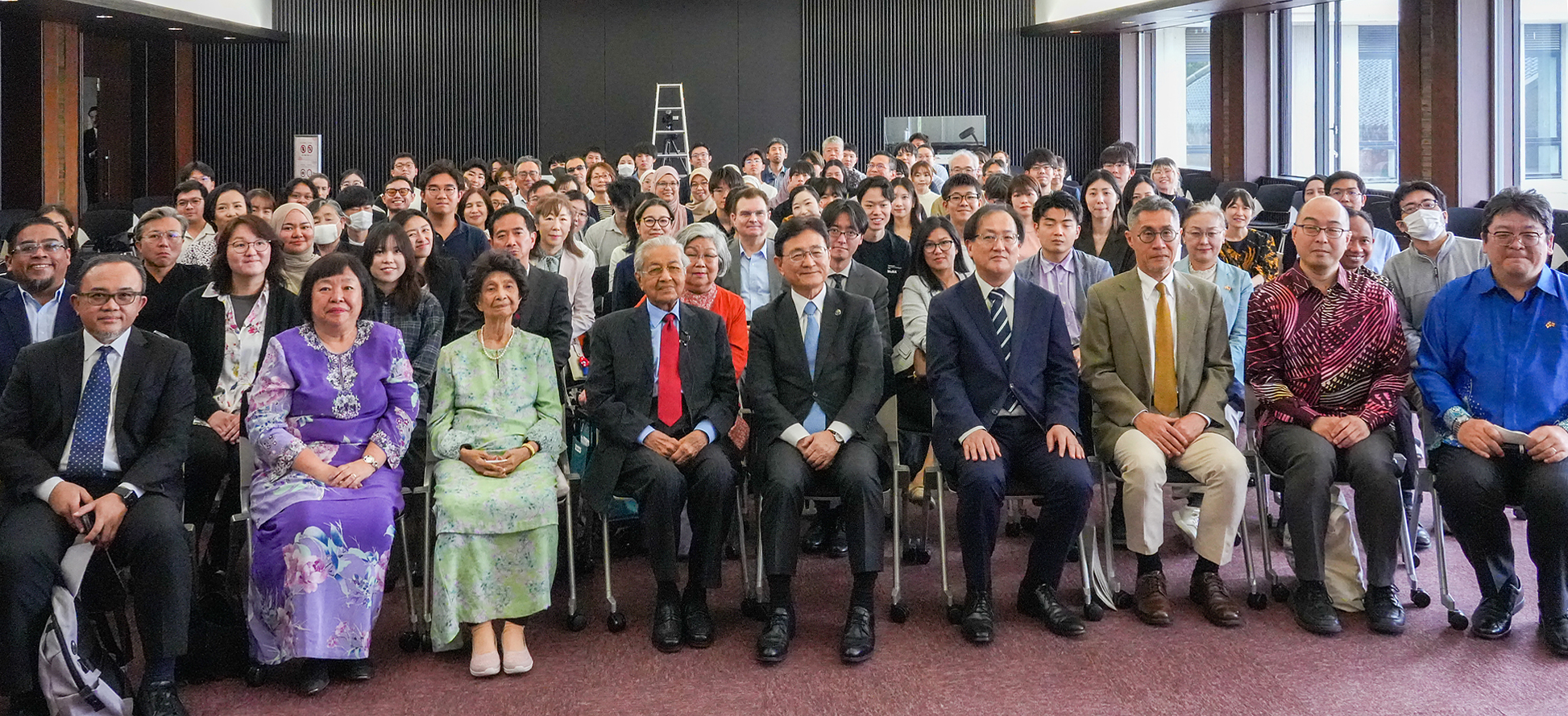
Related Information
SPECIAL LECTURE by Tun Dr. Mahathir bin Mohamad “Asia and the World on the Brink: Rethinking Order in an Age of Turmoil”
CSEAS welcomes Tun Dr. Mahathir Mohamad, former Prime Minister of Malaysia
Special Lecture by Tun Dr. Mahathir bin Mohamad, hosted by CSEAS, was reported by major Japanese media outlets
This article is also available in Japanese. >>
マハティール・モハマド氏 特別講演
「混迷の時代におけるアジアと世界の展望」

